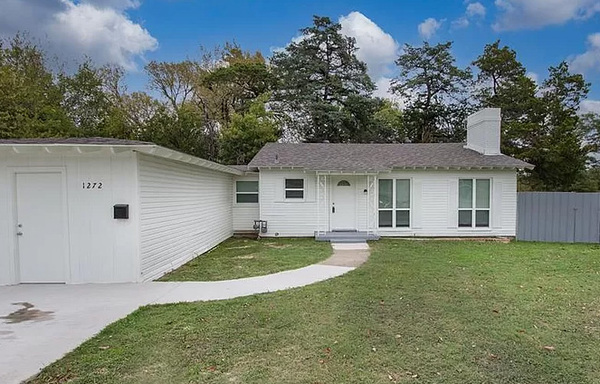As the financial landscape continues to evolve, reverse mortgages have emerged as a significant option for seniors looking to leverage their home equity for financial stability. Particularly in Texas, where real estate plays a pivotal role in the economy, understanding reverse mortgages can provide valuable insights for homeowners seeking to enhance their retirement years. In this blog post, we will explore what reverse mortgages are, how they work, the benefits and drawbacks specific to Texas homeowners, and important considerations to keep in mind.
What is a Reverse Mortgage?
A reverse mortgage is a financial product designed to allow homeowners aged 62 or older to convert a portion of their home equity into cash. Unlike a traditional mortgage, where the homeowner makes monthly payments to the lender, a reverse mortgage pays the homeowner. The loan is repaid when the homeowner sells the property, moves out, or passes away. The most common type of reverse mortgage is the Home Equity Conversion Mortgage (HECM), which is insured by the Federal Housing Administration (FHA).
How Do Reverse Mortgages Work?
Reverse mortgages are structured to provide financial flexibility and ease for seniors. Here’s how they generally work:
- Eligibility and Application: To qualify for a reverse mortgage in Texas, the homeowner must be at least 62 years old, live in the home as their primary residence, and have sufficient equity in the property. The home must also meet certain standards and be in good condition.
- Loan Approval: The amount you can borrow is based on several factors including your age, the interest rate, and the home's value. Lenders use a formula to determine how much you can receive, which is typically expressed as a percentage of the home's value.
- Receiving Funds: Once approved, homeowners can choose how to receive the funds. Options include a lump sum, monthly payments, a line of credit, or a combination of these. The funds can be used for various purposes such as home improvements, paying off debt, or covering everyday expenses.
- Repayment: Unlike traditional mortgages, reverse mortgages do not require monthly payments. The loan balance grows over time due to accrued interest and fees. Repayment occurs when the homeowner sells the home, moves out, or passes away. At that point, the loan balance is settled from the proceeds of the home sale.
Benefits of Reverse Mortgages in Texas
Reverse mortgages offer several benefits that can be particularly advantageous for Texas homeowners:
- Supplemental Income: For retirees on a fixed income, a reverse mortgage can provide a valuable source of supplemental income. This can help cover living expenses, healthcare costs, or leisure activities, enhancing overall quality of life.
- No Monthly Payments: One of the primary advantages of a reverse mortgage is the absence of monthly mortgage payments. This can relieve financial stress and free up funds for other needs.
- Home Equity Preservation: Since the loan is repaid from the sale of the home, homeowners can retain ownership and continue living in their property while enjoying the benefits of their home equity.
- Flexibility: The various disbursement options allow homeowners to tailor the reverse mortgage to their financial needs and preferences. Whether opting for a lump sum or monthly payments, the flexibility can be tailored to individual circumstances.
- Tax-Free Funds: The funds received from a reverse mortgage are typically tax-free, which means they do not affect Social Security benefits or other sources of income.
Drawbacks and Considerations
While reverse mortgages offer numerous benefits, there are also drawbacks and considerations specific to Texas homeowners:
- Home Maintenance and Property Taxes: Homeowners are still responsible for maintaining the property and paying property taxes and homeowners insurance. Failure to meet these obligations can lead to foreclosure.
- Accruing Interest and Fees: The loan balance increases over time due to accrued interest and fees. This can reduce the amount of equity left in the home for heirs or in case the homeowner decides to sell.
- Impact on Heirs: Since the loan is repaid from the home’s sale proceeds, there may be less inheritance left for heirs. It’s important for homeowners to discuss their plans with family members and consider how a reverse mortgage might affect their estate.
- Eligibility and Costs: While reverse mortgages can be beneficial, they are not suitable for everyone. The eligibility requirements and costs associated with obtaining a reverse mortgage, such as origination fees, closing costs, and mortgage insurance premiums, should be carefully evaluated.
Reverse Mortgages in the Texas Market
Texas is known for its diverse real estate market, and the popularity of reverse mortgages can vary by region. In urban areas such as Dallas, Houston, and Austin, where property values are high, homeowners may find reverse mortgages particularly advantageous for accessing significant home equity. In contrast, rural areas may have lower property values, affecting the amount of equity available.
Market Trends: The demand for reverse mortgages in Texas has seen fluctuations over the years. Factors such as housing market conditions, interest rates, and changes in federal regulations can impact the popularity and attractiveness of reverse mortgages.
Local Regulations and Resources: Texas homeowners should be aware of local regulations and resources related to reverse mortgages. The Texas Department of Savings and Mortgage Lending and local housing counseling agencies can provide valuable information and support.
Choosing the Right Reverse Mortgage for You
If you’re considering a reverse mortgage in Texas, it’s essential to make an informed decision. Here are some steps to help you choose the right option:
- Research Lenders: Compare reverse mortgage lenders and their terms. Look for reputable lenders with positive reviews and competitive rates. Ensure that the lender is licensed and insured.
- Consult a Financial Advisor: Before making any decisions, consult with a financial advisor or housing counselor who can provide personalized advice based on your financial situation and goals.
- Understand the Terms: Carefully review the terms and conditions of the reverse mortgage, including interest rates, fees, and repayment options. Make sure you fully understand how the loan will impact your finances and your home equity.
- Plan for the Future: Consider your long-term plans and how a reverse mortgage might fit into your overall financial strategy. Think about potential future needs and how the reverse mortgage might affect your estate and heirs.
Conclusion
Reverse mortgages in Texas can offer a valuable financial tool for seniors looking to access their home equity while maintaining their current lifestyle. Understanding how reverse mortgages work, their benefits, and their potential drawbacks is crucial for making an informed decision. By carefully researching options, consulting with professionals, and considering your long-term goals, you can determine whether a reverse mortgage is the right choice for you. As you navigate this financial decision, remember that the key to success is making informed choices that align with your unique needs and aspirations.



